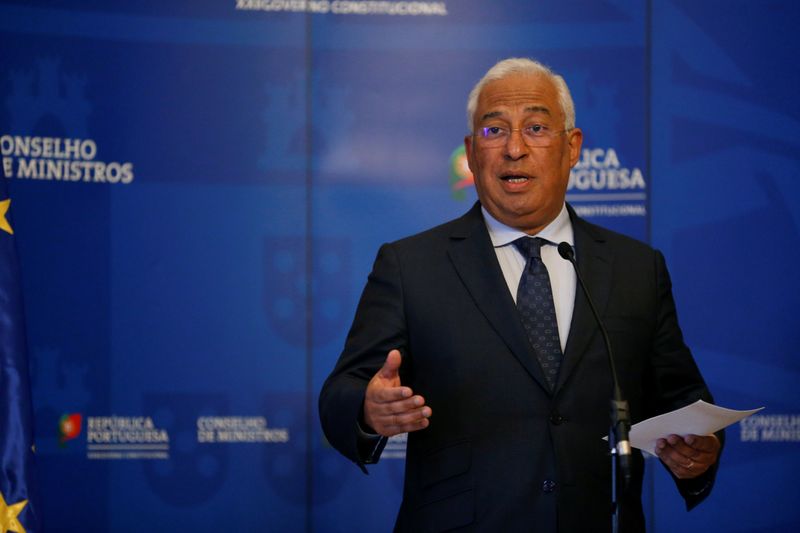LISBON (Reuters) – Portugal’s Prime Minister Antonio Costa urged European leaders on Wednesday to agree a joint debt issuance worth up to 1.6 trillion euros ($1.73 trillion) to support the recovery of the bloc’s coronavirus-battered economies.
The 27 EU countries are sparring with over how to finance their recovery in the aftermath of the health crisis, after the Netherlands and Germany ruled out common debt issuance.
“It is essential that a strong and clear response comes out of the European Council,” Costa told parliament ahead of the European Council’s special meeting on Thursday.
“Either we mutualise our recovery efforts or we will be all here mutualising our losses,” he said, adding that the funds should be distributed among member states mostly through transfers and grants but not through loans.
“What’s at stake is the fragmentation or the unity of the internal market,” Costa said, warning that countries which benefit the most from the internal market will be “the ones losing the most with its fragmentation”.
On April 9, European Union finance ministers agreed half-a-trillion euros worth of support but not joint “eurobond” debt.
Earlier on Wednesday, France said it backed, in principle, a Spanish proposal for the creation of an EU “recovery fund” of up to 1.5 trillion euros financed by perpetual debt and backed by the EU budget.
Perpetual debt has no maturity date, with creditors receiving interest payments but the principal never being repaid.
It was not immediately clear if Costa’s proposal involved a similar funding option, which Spain had described as “a different mutualisation scheme” that could be agreed by all.
Last Monday, Eurogroup chief Mario Centeno said finance ministers will meet soon after the European Council’s meeting and the “debt issue” will be on the table as the recovery of indebted countries is “much more complex”.
($1 = 0.9245 euros)
(Reporting by Catarina Demony and Sergio Goncalves, Editing by Andrei Khalip and Elaine Hardcastle)






















